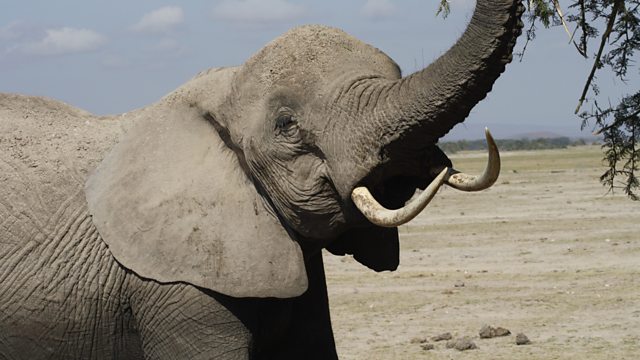
Ivory Forensics Detect Africa Poaching Hotspots
Elephant poaching is on the rise. Worst hit is the African elephant – with 51,000 reportedly killed for their ivory in 2013.
Elephant poaching is on the rise. Worst hit is the African elephant – with 51,000 reportedly killed for their ivory in 2013. New research in the journal Science has shown that the poaching is not localised and scattered throughout Africa. But rather concentrated in two main hotspots – notably Tanzania and into Mozambique, and the Tridom protected ecosystem (Tri-national Dja-Odzala-Mikebe) that includes part of Gabon, DRC, Cameroon and the adjacent Dzanaga reserve in Central African Republic. Conservation biologist, Dr Sam Wasser, at the University of Washington in the US came to these conclusions after analysing the DNA in the seized ivory, and then matching it to elephant material found in their dung, to tie the elephant’s origin back to one particular place.
Philae Awakes
The European Space Agency (Esa) says its comet lander, Philae, has woken up and contacted Earth. Philae, the first spacecraft to land on a comet, was dropped on to the surface of Comet 67P by its mothership, Rosetta, last November. It worked for 60 hours before its solar-powered battery ran flat. The comet has since moved nearer to the Sun and Philae has enough power to work again,
What Does China Want from Space?
Fifteen years ago, manned space flight was still a dream for China. Now, they are looking to the moon. They have mastered space walking, they are building advanced scientific satellites in partnership with the European Space Agency, and they are constructing their own ‘heavenly palace’ – a space station to rival the ISS. But some, not least the United States, are concerned by possible military uses for China’s blossoming space technology.
Harnessing Energy from Evaporating Water
An immensely powerful yet invisible force pulls water from the earth to the top of the tallest redwood and delivers snow to the tops of the Himalayas. Now scientists from the Columbia University report the development of two novel devices that derive power directly from evaporation -a floating, piston-driven engine that generates electricity causing a light to flash, and a rotary engine that drives a miniature car.
Kennewick Man
A long-running debate over an ancient skeleton known as Kennewick Man has been reignited. The 9,000-year-old was claimed as an ancestor by Native Americans, who called for his remains to be reburied. However, a group of anthropologists said the specimen's features were not similar to people from local tribes and won a legal bid to study the bones. Now a genetic analysis has revealed his DNA is more closely related to modern Native Americans than to anyone else.
The Bone Wars
Tracey Logan takes us back to the wild west of America, and looks at the extraordinary feud that came to be known as the Bone Wars. This is a tale of corruption, bribery and sabotage - not by cowboys, but by two palaeontologists, Edward Drinker Cope and Othniel Charles Marsh, who would stop at nothing in their race to find new dinosaur fossils. This was the golden age of dinosaur discovery, and their bitter war led to the discovery of some of our most iconic dinosaur species: Stegosaurus, Triceratops, Diplodocus and Camarasuarus to name a few. What led these two seemingly respectable men of science to behave in such an unseemly way, and what was the legacy of this now infamous feud? Tracey Logan investigates.
Plants to Treat Malaria
Extracts of the Mexican poppy found in Mali can treat malaria. Dr Merlin Willcox, a clinical researcher from Oxford University, visited communities in Mali to see how healers are using local plants to treat disease. He found that the Mexican poppy has some active ingredients that can treat malaria in some ways as effectively as current medicines. He told Claudia Hammond about how he went about this process of reverse pharmacology.
(Picture: African elephant. Credit: Andrew Luck-Baker)
Last on
More episodes
Previous
Next
Broadcasts
- Sat 20 Jun 2015 21:05GMT����ý World Service Online
- Sun 21 Jun 2015 10:05GMT����ý World Service Online
Podcast
-
![]()
Unexpected Elements
The news you know, the science you don't

